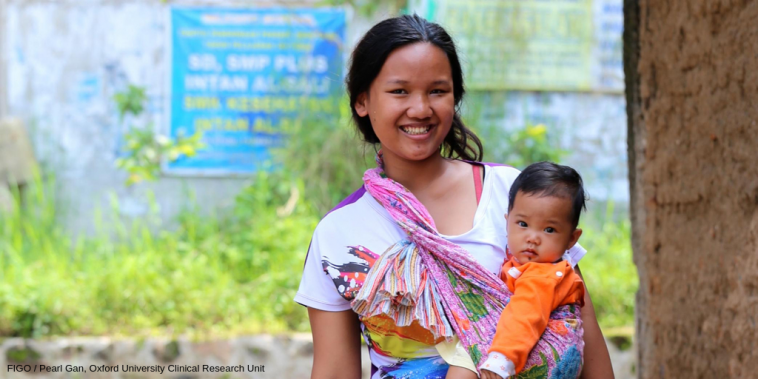Winner of the 2019 FIGO Photo Competition


A mother and her baby leave a Puskesmas - a government-mandated primary care clinic - in West Java, Indonesia, following a check-up. The woman smiles, as the infant stares out from the safety of a bright sarong wrap.
This quiet moment of active participation in their own health and well-being is the realisation of a fundamental human right. It is also the winning image selected by the judges of FIGO’s 2019 Photo Competition.
The photo communicates, in simple terms, the transformative power of access to quality, cost-effective and efficient primary health care for women.
It was taken by Pearl Gan, Photographer in Residency* at the Oxford University Clinical Research Unit in Vietnam and their sister unit, Eijkman Oxford Clinical Research Unit, Jakarta.
A Singaporean photographer working to raise awareness of infectious diseases in the Asia Pacific region, Pearl told FIGO the story behind the image:
“I was about to leave the local health centre when I saw the mother and child just leaving, after a health check. The woman’s husband works as a rubbish collector for the neighbourhood, and his job has a high risk of contracting tuberculosis. Regular check-ups for the family are important.”
The WHO’s vision for primary health care in the 21st century is to ensure the highest possible level of health and well-being, with equitable distribution through action on three levels:
- integrated health services
- addressing the broader determinants of health
- empowering individuals families and communities to be advocates as self-carers and caregivers.
Women with access to primary care are more able to work and earn money, and to care for their children, ensuring the sustainability of health systems in the long term and that no-one is left behind.
Said Associate Professor Timothy Lim, President of the Obstetrical and Gynaecological Society of Singapore (OGSS), a FIGO National Member Society,
“Primary care is an important step to achieving universal health coverage, and especially for maternal and child health, because it is concerned with health promotion for prevention and treatment. The best basis for achieving WHO’s vision for health for all is on a strong primary health care system.”
The FIGO Photo Competition launched in 2019 with an invitation for our global community to share perspectives from the frontlines of women’s health. As a federation bringing together OBGYNs across 132 countries, we know that women and children are often the most marginalised when it comes to gender rights, human rights, and health equity.
Explained Pearl,
“Like many of those in disadvantaged families in the periphery of Indonesia, Ms Pradina, who gave consent for the photo, has had to struggle through life looking after the health of her family. Financial barriers are usually a major hindrance to accessing quality health services, and women in isolated regions are hampered by long journeys to access facilities. Challenges can also include a shortage of staff and a limited range and quality of healthcare products.
Through my captured images, I hope to create an emotional connection between the viewers and the plight of the subjects. An informed public can help facilitate global efforts to improve health for all.”
FIGO shares WHO’s ambition to mobilise health professionals to deal effectively with the current and future challenges to health. We commit to joint actions to build stronger and sustainable primary health care towards achieving a vision of universal health coverage that truly works for women and girls.
* The project is funded by Wellcome [106680/Z/14/A]